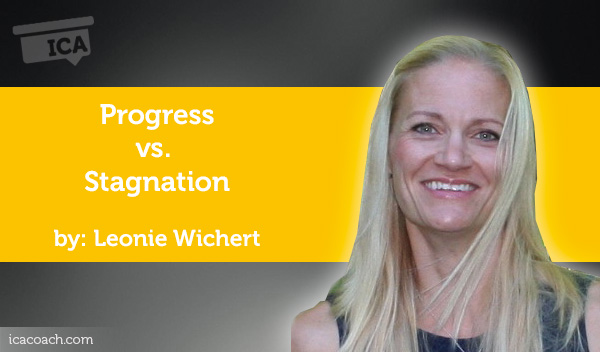
A Coaching Power Tool Created by Leonie Wichert
(Life Coach, UNITED KINGDOM)
When I look at infants and toddlers, they just live every moment of their wake hours; they use all their senses to learn about the world around them. They, initially, do not have any concept of doing things ‘right’ or ‘wrong’. They do not get discouraged, they do not give up. They take their first step, fall over, get up and try again. They practice and do things tirelessly again and again and again until they can do it.
When children get older, this progress and perseverance lessens at some point –but not in all children. There are those who are not afraid of making mistakes, those who thrive when challenged, who grow with every new difficulty that presents itself. And there are those who start to question themselves and do not want to give seemingly tricky things a try; feeling they would rather not try than make a mistake or fail (at their first attempt). Ultimately, such unwillingness (whatever the source) to explore and develop leads to some form of stagnation.
What is the difference? What happened?
According to Dr. Carol Dweck, it has to do with their mindset. Some people have a growth mindset, others a fixed mindset. Some people see a challenge as an opportunity to develop and progress others crumble and stagnate.
In a growth mindset, people believe that their most basic abilities can be developed through dedication and hard work—brains and talent are just the starting point. This view creates a love of learning and a resilience that is essential for great accomplishment,
writes Dweck. People with a growth mindset believe that they are in control of their own ability, and can learn and improve. Contrary, people with a fixed-mindset are highly sensitive to being wrong or making a mistake. So, failure brings them doubt, demeans their character, and destroys their confidence. People with a growth mindset view failure only as feedback about their performance, and not as a judgement of their personality or potential.
I believe that a limiting belief in one’s own ability restricts people from achieving their dreams. The fear of failure, of not being good enough prevents some from trying, from working hard towards what they want and believe in. The belief that things should be a certain way and should be easily achieved when they are ‘meant’ to be is the source of unrealized dreams, broken relationships, and disappointment.
One of my son’s favourite books is the story of the tortoise and the hare. (The hare, boastful and arrogant, challenges the other animals to a race. The tortoise is the only animal to accept, neither afraid of entering this race, nor of losing. The hare is so sure of his abilities that he does not prepare and is tired on the day of the race. While the hare takes a nap, the tortoise, well rested, plods on and on and on. When the hare awakes, it is too late to catch up and the tortoise wins the race.) This is a great book about perseverance, the belief in oneself and the courage of trying against all odds, not letting the possibility of failure limit oneself.
The growth mindset helps people to take control of their life, which is hugely empowering. Research shows that people who feel in control tend to perform better. It’s a virtuous cycle. And can lead to great progress, personal development and achievement, which is a strong source for happiness.
Believe in yourself
When you hear that little critical voice in your head telling you that you can’t do something, reply with a growth mindset approach and tell yourself that you can learn.
Do not say: I don’t know the answer; I can’t do it. Try instead: I can’t do this YET, what am I missing.
Regard life’s challenges as opportunities to grow rather than problems that cannot be overcome. Change your perspective and trust in your abilities and resources.
How to develop a growth mindset:
Questions to ask your client:
Resources:
https://www.developgoodhabits.com/fixed-mindset-vs-growth-mindset/
https://positivepsychologyprogram.com/growth-vs-fixed-mindset/#nurturing-growth-mindset
https://www.skillsyouneed.com/ps/mindsets.html